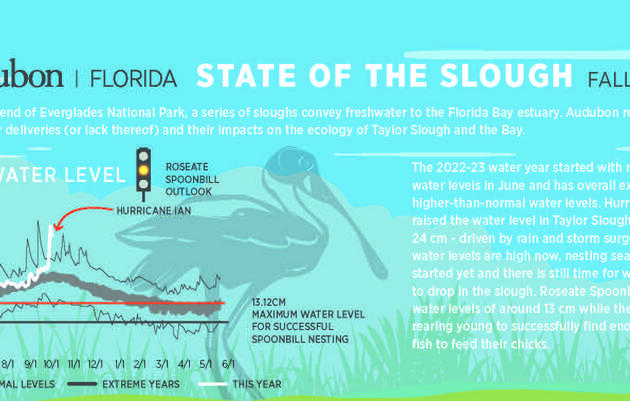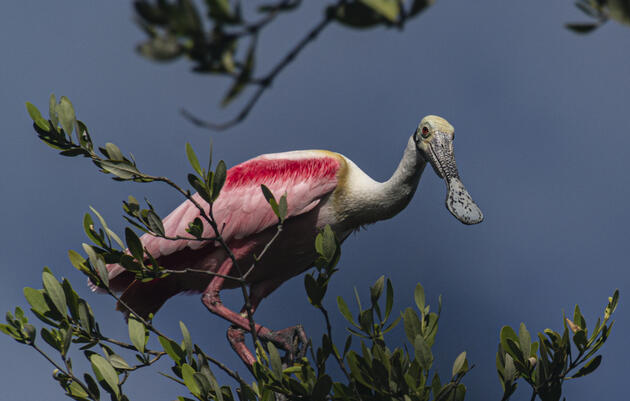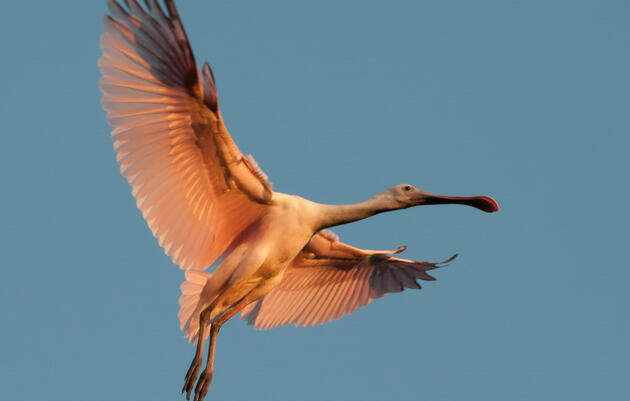The Everglades Science Center team is in the middle of a busy wading bird nesting season. Roseate Spoonbills are the “canary in the coal mine” for the Everglades. Because this species has a clear relationship with water conditions in the River of Grass, the colorful wading birds can tell us if restoration is successful farther upstream. They also provide cues that warn us about changes in their environment, such as the rising sea level.
“The season started slowly,” explains Alexander Blochel, Senior Biologist at the Everglades Science Center. “We found the first five nests with eggs in mid-December.”
Data from the last five years shows that most of the Roseate Spoonbills in Florida Bay begin nesting in November and started laying eggs in early December, which is a bit late. Nesting continued through December and January, and by the end of January, Research Associate Emily Johnson was monitoring nests in every region of Florida Bay.
As we move into the latter part of February, at least six Roseate Spoonbill chicks have already fledged. “Though we are hopeful that many more will fledge this year, winter rain and unpredictable water levels have been challenging for spoonbill parents trying to find food for their chicks,” Blochel says.
Additionally, the Everglades Science Center staff outfitted a Roseate Spoonbill with a cellular transmitter in November, part of an ongoing study with more than a dozen tracked spoonbills. In the remote reaches of Florida Bay, remote tracking technology is unlocking a world of information about the movements, routines, and habitat preferences of Florida’s iconic pink birds.
As the season progresses, our team will continue to monitor the spoonbills to study their overall nesting success and what that tells us about the Everglades as a whole. Stay tuned!







